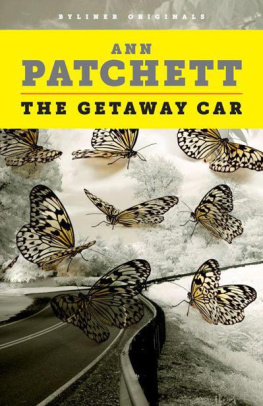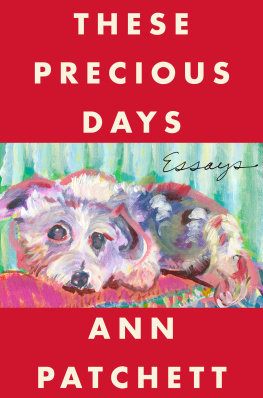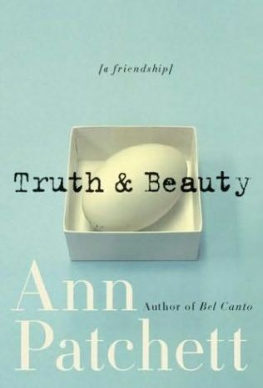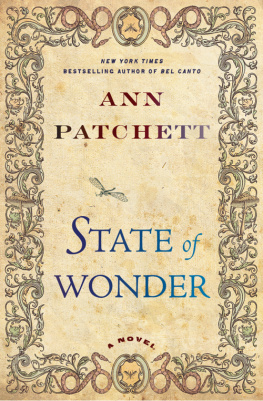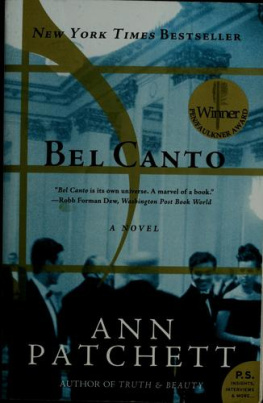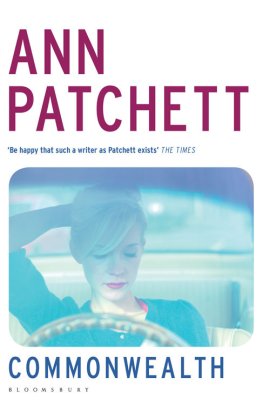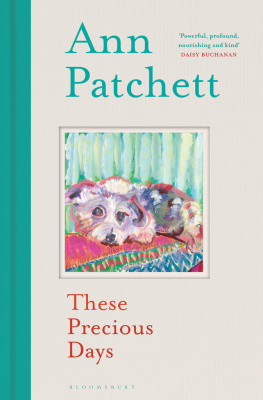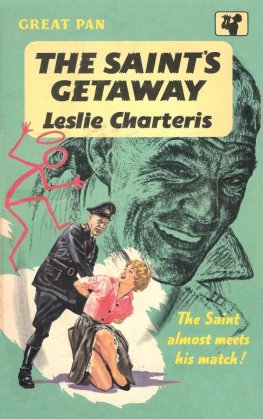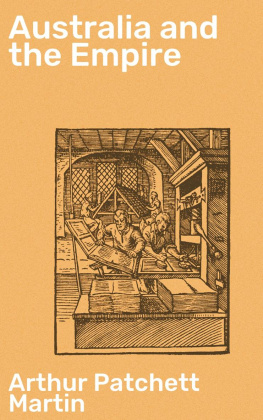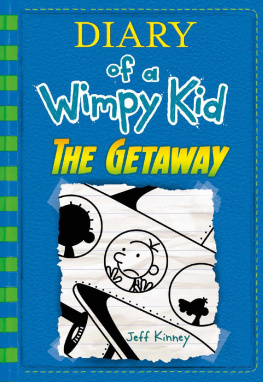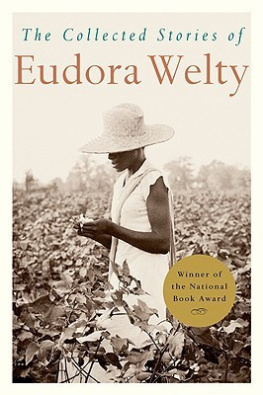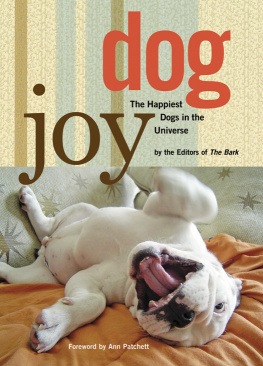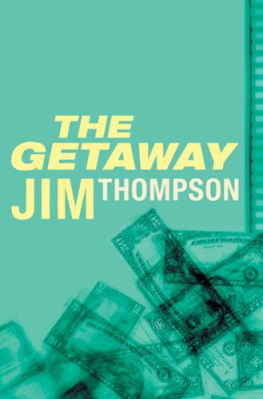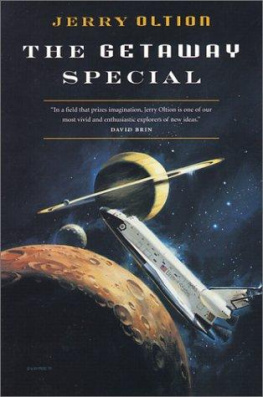Ann Patchett - The Getaway Car
Here you can read online Ann Patchett - The Getaway Car full text of the book (entire story) in english for free. Download pdf and epub, get meaning, cover and reviews about this ebook. genre: Science fiction. Description of the work, (preface) as well as reviews are available. Best literature library LitArk.com created for fans of good reading and offers a wide selection of genres:
Romance novel
Science fiction
Adventure
Detective
Science
History
Home and family
Prose
Art
Politics
Computer
Non-fiction
Religion
Business
Children
Humor
Choose a favorite category and find really read worthwhile books. Enjoy immersion in the world of imagination, feel the emotions of the characters or learn something new for yourself, make an fascinating discovery.
- Book:The Getaway Car
- Author:
- Genre:
- Rating:4 / 5
- Favourites:Add to favourites
- Your mark:
- 80
- 1
- 2
- 3
- 4
- 5
The Getaway Car: summary, description and annotation
We offer to read an annotation, description, summary or preface (depends on what the author of the book "The Getaway Car" wrote himself). If you haven't found the necessary information about the book — write in the comments, we will try to find it.
The Getaway Car — read online for free the complete book (whole text) full work
Below is the text of the book, divided by pages. System saving the place of the last page read, allows you to conveniently read the book "The Getaway Car" online for free, without having to search again every time where you left off. Put a bookmark, and you can go to the page where you finished reading at any time.
Font size:
Interval:
Bookmark:
Copyright 2011 by Ann Patchett
All rights reserved
Cover image: iStockphoto.com/highiso ( road ); iStockphoto.com/proxyminder ( butterflies )
ISBN: 978-1-61452-011-5
Byliner Inc.
San Francisco, California
www.byliner.com
For press inquiries, please contact
10 9 8 7 6 5 4 3 2 1
The Getaway Car
A Practical Memoir About Writing and Life
By Ann Patchett
BYLINER ORIGINALS
I WAS ALWAYS GOING TO BE A WRITER. Ive known this for as long as Ive known anything. It was an accepted fact in my family by the time I had entered the first grade, which makes no sense, as I was late to either read or write. In fact, I was a terrible student when I was young. Ive always believed the reason I was passed from grade to grade was that I could put together some raw version of a story or poem, even if all of the words were misspelled and half of them were written backwards. Like a cave child scratching pictures on the wall of bison and fire and dancing, I showed an early knack for content. Only writing kept me from being swept into the dust heap of third grade, and for this reason I not only loved writing but felt a strong sense of loyalty to it. I may have been shaky about tying my shoes and telling time, but I was sure about my career, and I consider this certainty the greatest gift of my life. I cant explain where the knowledge came from, only that I hung on to it and never let go.
Knowing that I wanted to write made my existence feel purposeful and prioritized as I was growing up. Did I want to get a big job and make a lot of money? No, I wanted to be a writer, and writers were poor. Did I want to get married, have children, live in a nice house? No again; by the time I was in middle school Id figured out that a low overhead and few dependents would increase my time to work. While I thought I might publish something someday, I was sure that very few people, maybe no one at all, would read what I wrote. By ninth grade I was drawing from the Kafka model: obscurity during life with the chance of being discovered after death. Young as I was when I made this commitment, it wasnt quite as morbid as it soundsso many of the writers we studied in school were unknown in their lifetimes (or, better still, scorned and dismissed) that I naturally assumed this to be the preferable scenario. It was also in keeping with my Catholic education, which stressed the importance of modesty and humility. I did not daydream of royalty checks, movie deals, or foreign rights. Success never figured into my picture. The life I would have would be straight out of La Bohme (having never heard of La Bohme ): I would be poor, obscure, alone, possibly in Paris. The one thing I allowed myself was the certainty of future happiness. Even though the history of literature was filled with alcoholics, insane asylums, and shotguns, I could not imagine that I would be miserable if I got to spend my life as a writer .
It turns out that I was right about some of the details of my future and wrong about others, which is fitting, given the fact I was making it all up. No writers came to St. Bernard Academy for Catholic girls on Career Day, and so I marched towards the vision in my head without guidance or practical advice. This is where it got me.
At forty-seven, I am a veritable clearinghouse of practical advice, and since I have neither children nor students, I mostly dispense it in talks or short articles. There is a great appeal in the thought of consolidating the bulk of what I know about the work I do in one place, so that when someone asks me for advice I can say, Look, its here, I wrote it all down . Every writer approaches writing in a different way, and while some of those ways may be more straightforward than others, very few can be dismissed as categorically wrong. There are people who write in order to find out where the story goes. They never talk about what theyre working on. They say that if they knew the ending of the book, there would be no point in writing it, that the story would then be dead to them. And theyre right. There are also people, and I am one of them, who map out everything in advance. (John Irving, for example, cant start writing his books until he thinks up the last sentence.) And we are also right. There are a couple of habits I have acquired through years of trial and error that I would recommend emulating, but either you will or you wont. This isnt an instruction booklet. This is an account of what I did and what has worked for me, and now that thats been said, I will resist the temptation to open every paragraph with the phrase Its been my experience Thats what this is: my experience.
* * *
LOGIC DICTATES that writing should be a natural act, a function of a well-operating human body, along the lines of speaking and walking and breathing. We should be able to tap into the constant narrative flow our minds provide, the roaring river of words filling up our heads, and direct it out into a neat stream of organized thought so that other people can read it. Look at what we already have going for us: some level of education that has given us control of written and spoken language; the ability to use a computer or a pencil; and an imagination that naturally turns the events of our lives into stories that are both true and false. We all have ideas, sometimes good ones, not to mention the gift of emotional turmoil that every childhood provides. In short, the story is in us, and all we have to do is sit there and write it down.
But its right about there, the part where we sit, that things fall apart. Ive had people come up to me at book signings, in grocery stores, at every cocktail party Ive ever attended, and tell me they have a brilliant idea for a book. I get letters that try to pass themselves off as heres-an-offer-you-cant-refuse business proposals: My story will be a true blockbuster, a best-selling American original. Unfortunately, my busy schedule does not afford me the time to write it myself. This is where you come in The person then offers me some sort of deal, usually a 50-50 split, though sometimes its less. All I have to do is agree and he or she will tell me the ( Compelling! Unforgettable! ) story, and I will type it up in his or her own voice, a task that is presumed to be barely above the level of transcription. As in those random Internet letters that begin Dear Sir or Madam and tell of the countless millions that will be left to me, This is my lucky day .
I feel for these people, even as theyre assuming Im not bright enough to realize where theyve gotten stuck. I would also like to take this opportunity to apologize on the record to Amy Bloom. Once, when we were madly signing books at the end of a New York Times authors lunch (with Alan Alda, Chris Matthews, and Stephen L. Carter in between usa very busy event), an older woman appeared at the front of my line to tell me that the story of her familys arrival from the old country was a tale of inestimable fascination, beauty, and intrigue and that it must be made into a book, a book that I must write for her. I politely but firmly demurred, saying that I was sure it was a fantastic story, but I scarcely had the time to write about my own familys journey from the old country, much less all the stories I made up. She kept on talking, outlining in broad strokes her parents and their sacrifices and adventures. No , I said, trying to hold on to good manners, that is not what I do. But she didnt budge. She leaned forward and wrapped her fingers beneath the tables edge in case someone thought to try to pull her away. Short of yes , nothing I said was going to dislodge her from her spot. The crowd was backing up behind her, people who wanted to get my signature quickly so they could be free to adore Alan Alda (who was, my God, so adorable). When I was completely out of tricks, I told the woman to ask Amy Bloom. Amy Bloom might be interested , I said, and pointed my pen three authors away. The woman, seized by the prospect of a new captive audience, scurried into Amys line. It was a deplorable act on my part, and I am sorry.
Next pageFont size:
Interval:
Bookmark:
Similar books «The Getaway Car»
Look at similar books to The Getaway Car. We have selected literature similar in name and meaning in the hope of providing readers with more options to find new, interesting, not yet read works.
Discussion, reviews of the book The Getaway Car and just readers' own opinions. Leave your comments, write what you think about the work, its meaning or the main characters. Specify what exactly you liked and what you didn't like, and why you think so.

